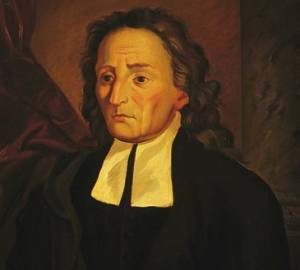Giambattista Vico’s On the Study Methods of Our Times
It would be difficult to find a figure in the Western tradition who embodies the core elements of Christian Humanism as a modern paideia more than the Italian philosopher, Giambattista Vico. In his seminal text, On the Study Methods of Our Times, Vico sketches the intellectual virtues and vices of his own modern age (early 18th century) as compared to the ancients. While he is careful to avoid a simple nostalgia for a golden philosophical past, as it were, it is his contention that the modern Cartesian epistemology of doubt and certainty does not provide adequate explanatory power for the actual lives of human beings in relation to God, others, and the world.
Vico assumes a natural bond of heart and language, through which follow a number of consequences for the study methods employed in the university. In this way, it is possible to make a balanced assessment of the advantages and disadvantages of modern (early 18th century) methods of study.[1] One of the key advantages of the ancients, as opposed to the moderns, is the distinctly Augustinian acknowledgment of “[t]he archetypical forms, the ideal patterns of reality, [that] exist in God alone. The physical nature of things, the phenomenal world, is modeled after those archetypes (23). While the modern age has done extraordinarily well to examine the nature of individual things, it has lost the valuable perspective their corresponding universals. For Vico, it not enough to know what a thing is in a strictly mechanistic sense. An able learner is always prepared to give answers to questions formal (substance) and final (teleology) cause. This is the central task of philosophy.
Furthermore, Vico challenges his counterparts to uphold a certain “criterion of truth: that we must respect the common judgment of men—the common sense of mankind—which God who does not allow himself to be forgotten even in the most abandoned nations, never rouses to more vigorous reflection than when the are most corrupt.” Vico thinks that a functioning society intuitively follows this common sense, while a declining society or nation spends a great deal on discussing such natural orders because they have lost their natural practice of them: “By when they are corrupted and ruined, then, because within themselves they ill endure their sense of lacking such things, they speak of nothing but what he affects to be and is not.”
In Humanism and Religion, Zimmermann puts it this way:
Vico’s view of education as character formation is also reminiscent of patristic paideia, even if at times it sounds rather Stoic. He indeed speaks of a ‘law of nature which commands each of us to be true to himself’ and asserts that such ‘is within our power because it is indeed within us. It is for our well-being because it is indeed within our nature.’ However, this Stoic sentiment is rooted more in the Christian than the pagan tradition. The human will is not subject to fate, but a mirror of the divine freedom that transcends creation. [1] Vico’s On the Study Methods explicitly pursues the question “Which study method is finer and better, ours or that of the Ancients? In developing this topic, I shall illustrate by examples the advantages and drawbacks of the respective methods” with the aim of comparing “the advantages afforded by the study methods of the two epochs” (Ibid., 5).
Ithaca: Cornell University Press, 1988, 428.
Harris, Joshua. “Giambattista Vico - The Study Methods of Our Time.” 11-22-2012. <http://www.humanismandculture.com/giambattista-vicos-on-the-study-methods-of-our-times/>.
